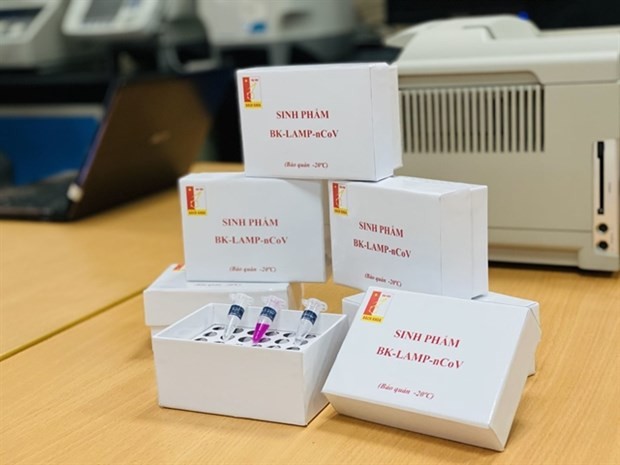
The group, with more than ten members and led by Dr Le Quang Hoa, in collaboration with Innogenex International Technology Science Ltd Company, made the test kit using a Reverse Transcription Loop-mediated Isothermal Amplification (RT-LAMP) technique.
The innovation which amplifies the ribonucleic acid (RNA) of pathogens to identify the virus has made Vietnam the first country to successfully develop RT-LAMP test kits for nCoV.
Currently, it takes about four hours to get the results if doctors use the standardised testing method called Reverse Transcription Polymerase Chain Reaction (RT-PCR), which is applied worldwide and recommended by the World Health Organisation (WHO).
The Vietnamese scientists started to conduct studies less than one month ago, on January 15, when China announced the gene characterisation of nCoV.
“The advantage of the new technique is that it is a simple analysis and does not require complicated equipment,” Hoa said.
“It shortens the testing time and simplifies the analysis process.”
According to the doctor, a test costs about VND 350,000 (US$ 15). The price to produce a RT-PCR test kit is VND 1 million (US$ 44).
The product has not been tested on the real virus but when it has been tested on samples, the result is accurate, Hoa said.
Because of its short time and simple process, the kits can be applied at district-level healthcare facilities.
“We hope that the health ministry and the Ministry of Science and Technology will support the research team to verify the product and apply it in testing the virus in the future,” he said.
Meanwhile, Hue Central Hospital has become the first healthcare facility in the central region to be able to test nCoV.
Earlier, the National Institute of Hygiene and Epidemiology based in Hanoi; centres for disease control based in Hanoi, Da Nang and Quang Ninh; Pasteur Institutes in HCM City and central Khanh Hoa province confirmed they could test the new strain of coronavirus.
After learning the technique from the Pasteur Institute in HCM City, doctors of the Hue Central Hospital conducted the first test on February 9.
The hospital has invested in more medical supplies and equipment to be able to test 100 more samples in four to five days.
According to hospital leaders, testing the virus at the hospital is very important to the treatment of suspected cases. It helps identify those who test negative for nCoV, cut the number of quarantined people and reduce pressure on the hospital’s resources and infrastructure.
The hospital will conduct the nCoV tests on those who show symptoms of acute respiratory system inflammation, fever, coughing, shortness of breath; those returning from infected areas or who have had close contact with nCoV patients or those suspected of infection.
The central province so far has not recorded any nCoV infection cases.
Vietnam has so far confirmed 14 nCoV infection cases, nine of them are from northern Vinh Phuc province. Three of the 14 patients have been discharged from hospital.
























